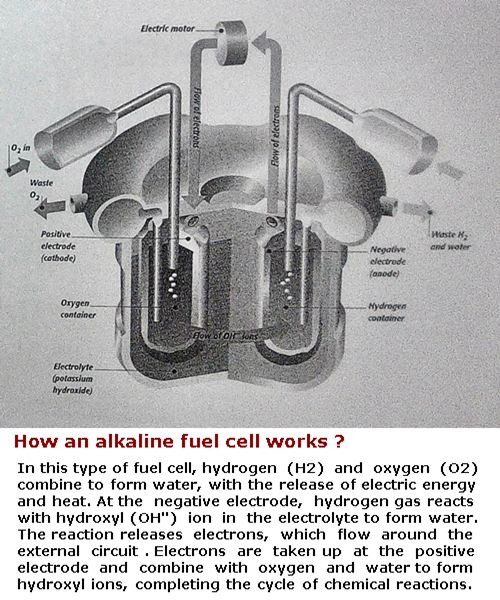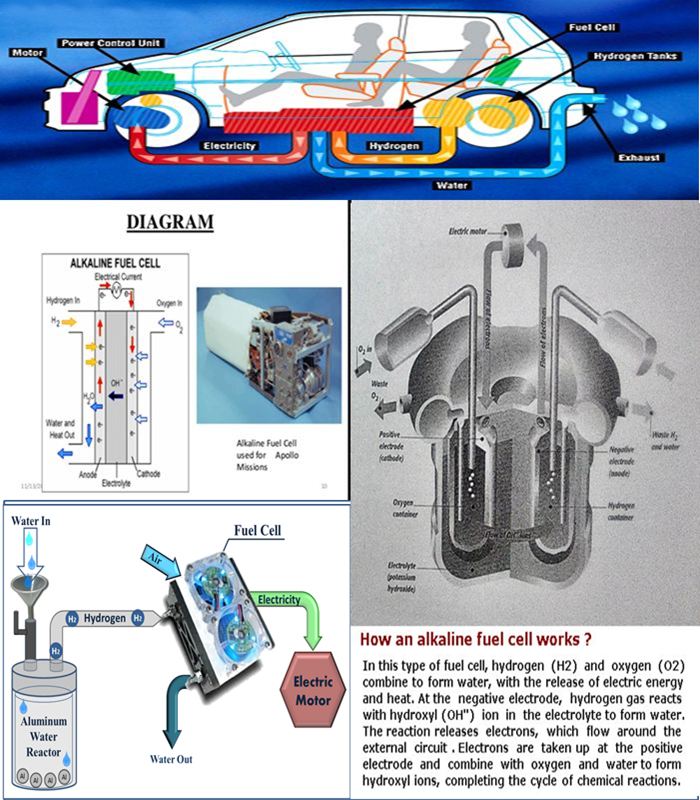Batteries
Batteries
=========
Since electricity cannot always be generated where and when it is needed, batteries were
developed to provide an easily transportable power supply. Although many different types
of batteries exist, they all work by storing energy in chemical form and converting it into
electric energy when it is required. Batteries power a wide range of machines , from
watches and cameras to satellites in space.
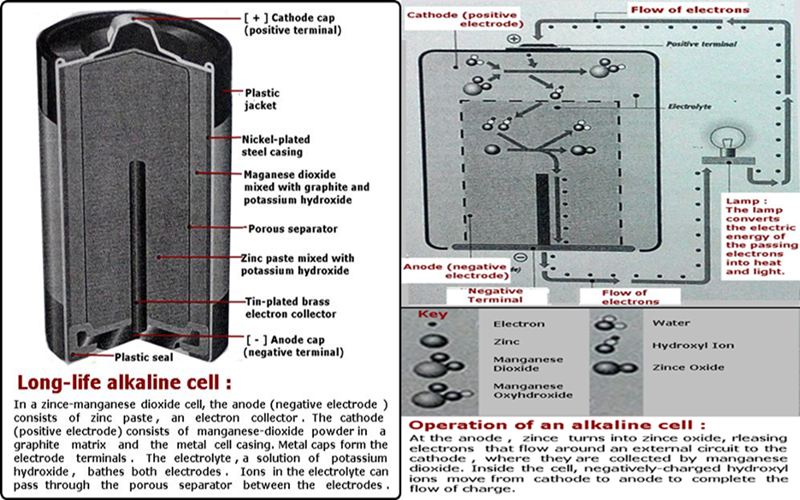
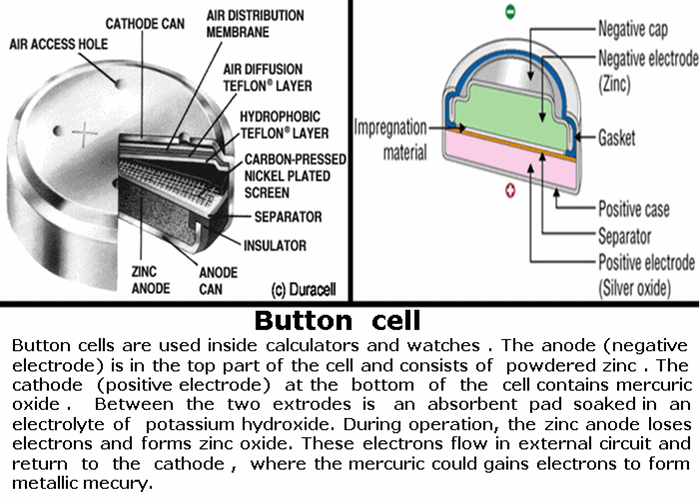
Automobile Battery
==================
All batteries contain one or more cells. Electro-chemical devices that convert chemical
energy into electric energy. A cell has three main components :
1) a positive electrode (+),
2) a negative electrode (-), and
3) an electrolyte , which is in contact with both electrodes.
When the battery is connected in a circuit, chemical reactions occur that produce an excess
of electrons in the negative electrode and a deficit in the positive electrode. The electrons
flow around the external circuit. This movement of electric charge is balanced by a movement
of ions (other charged particles) through the electrolyte.
Cells can be divided into primary and secondary . Primary cells include alkaline long-life batteries,
typically used in flashlights, which generate power by slowly using up their own store of chemicals.
Secondary cells include the lead-acid batteries used in autombiles and NiMH (nickel metal hydride)
batteries used in cellular phone. Unlike primary cells, secondary cells can be re-charged by passing
a current through them in the reverse direction to that in which they normally cause a current to flow.
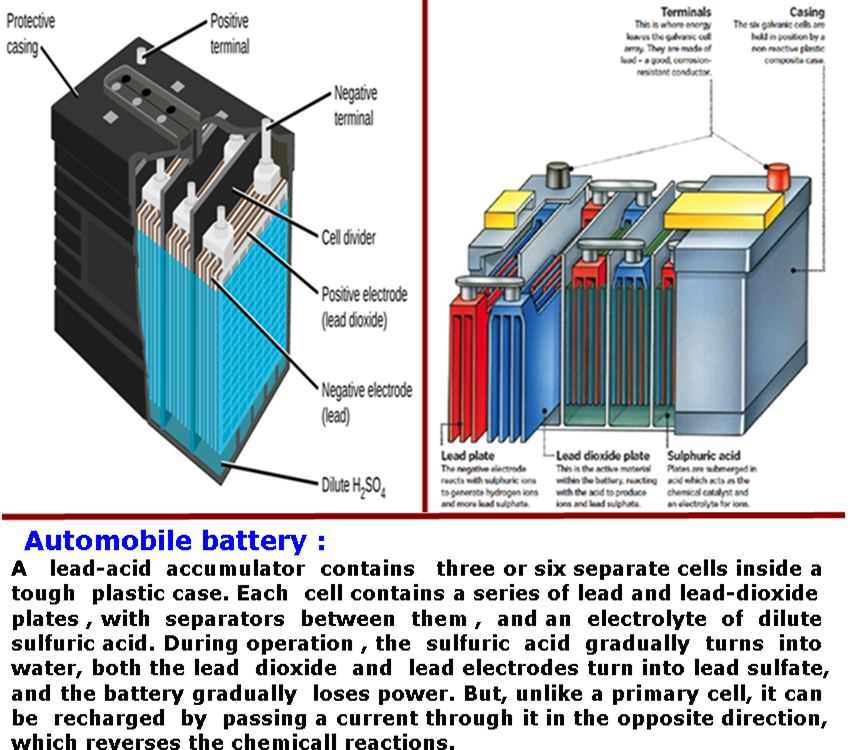
Fuel Cells
=========
Unlike a battery, which gradually loses its ability to generate electricity as the chemicals
inside it get used up, a fuel cell generates electricity from a continuous supply of chemicals.
Like a battery, a fuel cell has positive and negative electrodes and an electrolyte in between.
Fuel cells are used in unmanned space probes and in the Space Shuttle; they are expected
to be used in the cars of the future, because they are twice as efficient as internal combustion
engines and produce nothing more polluting than water.
